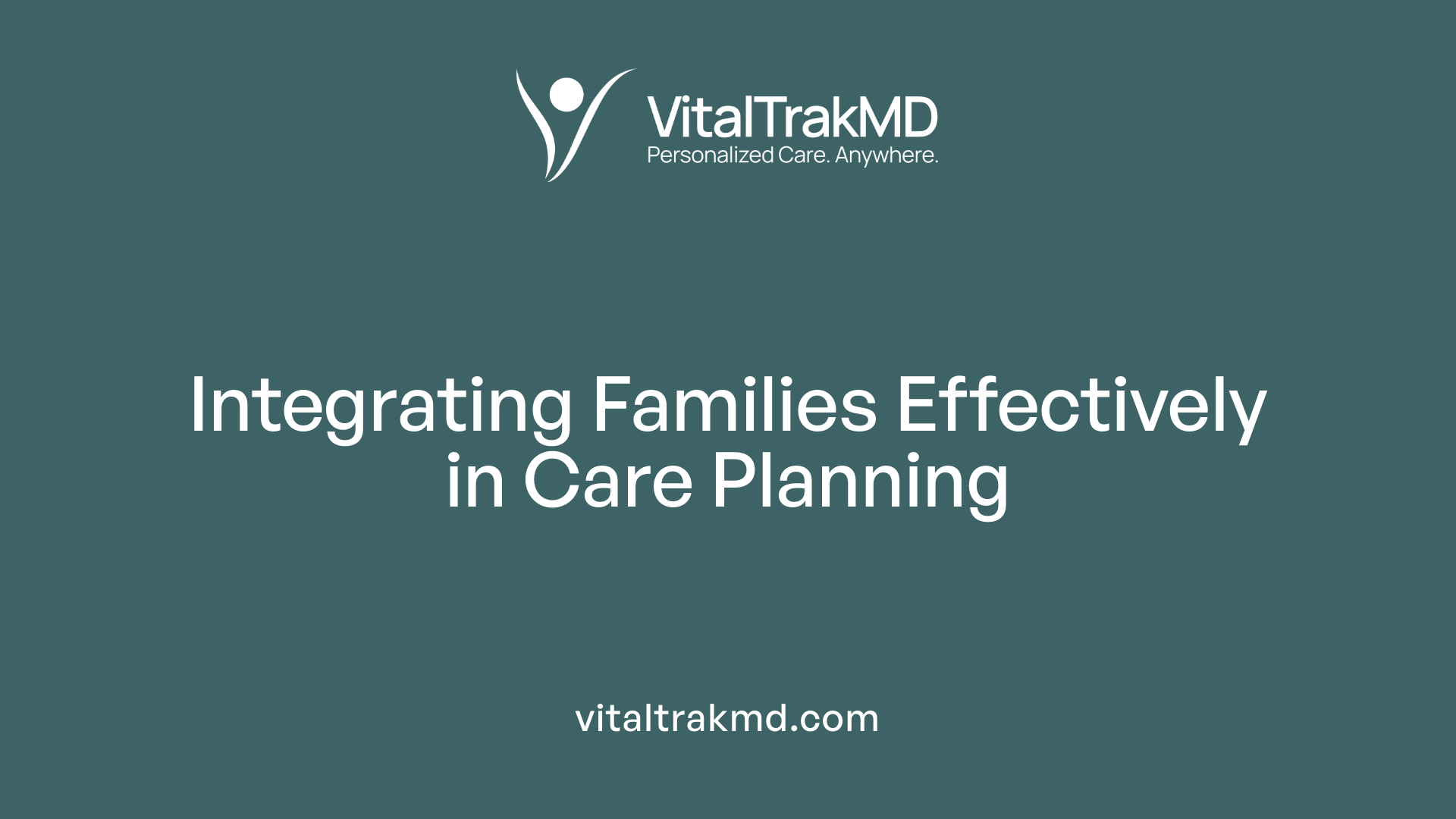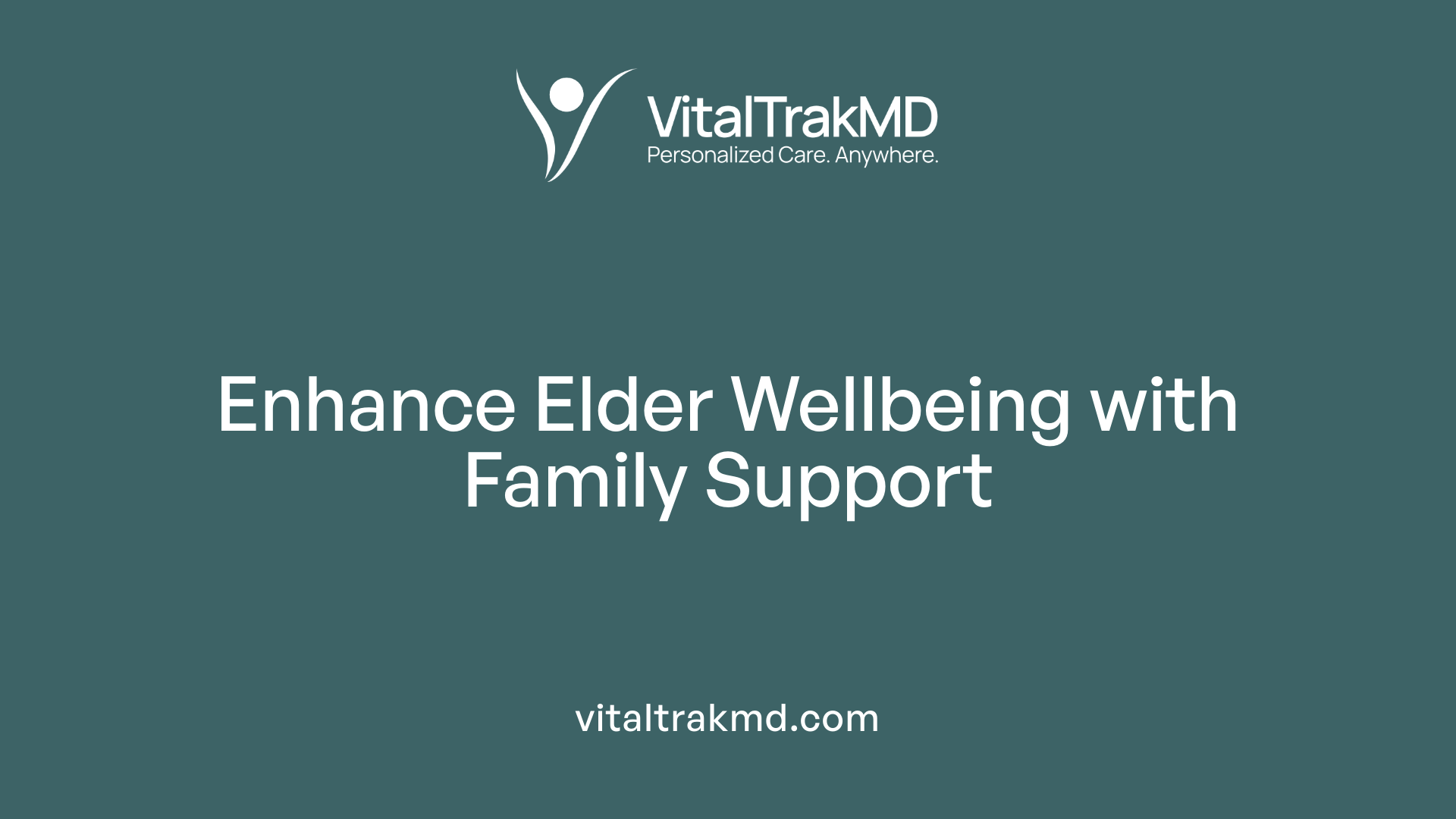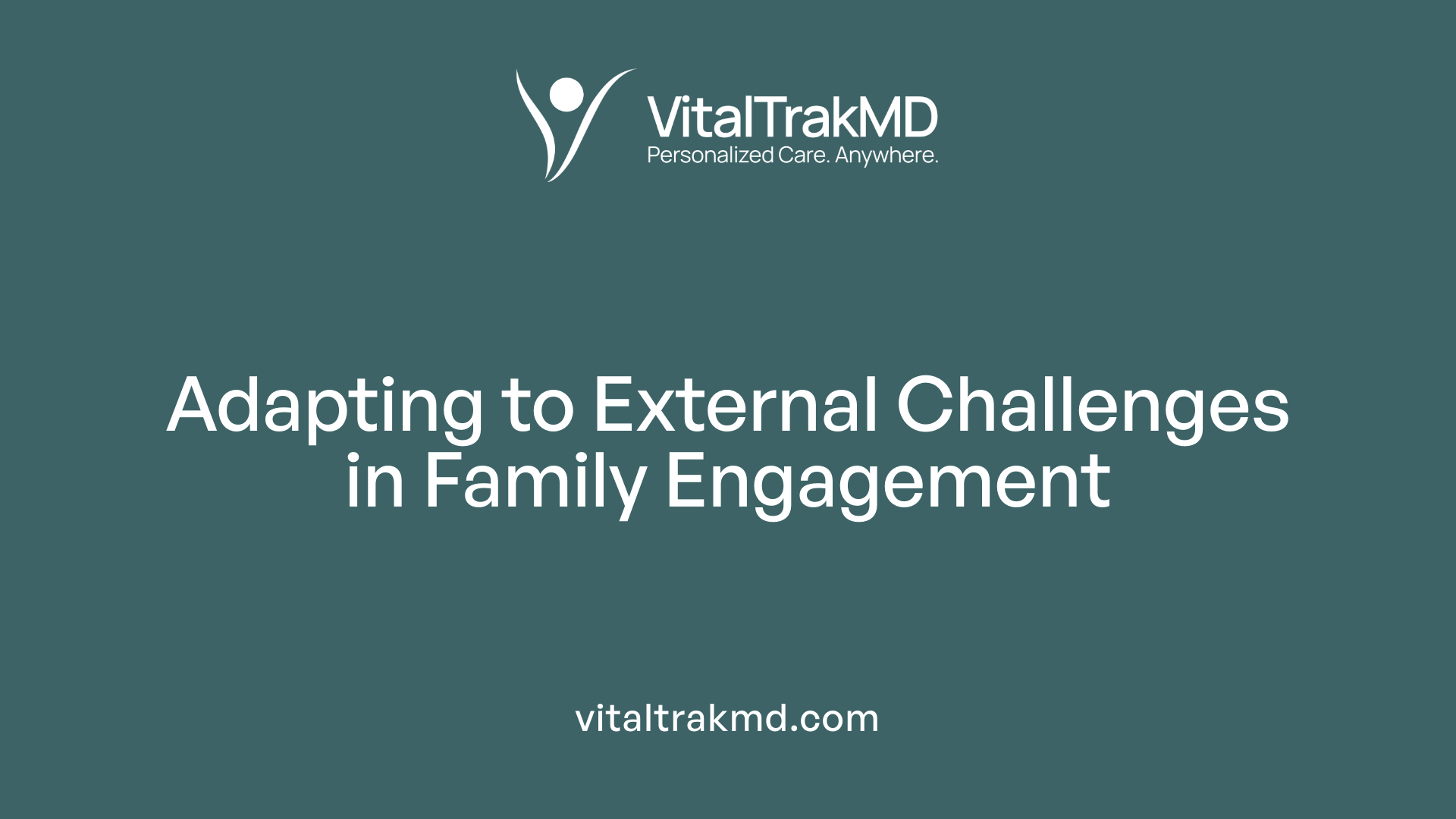How Family Involvement Enhances Senior Hybrid Care Plans

The Power of Family in Senior Healthcare
Family involvement is a cornerstone of effective senior hybrid care plans, encompassing emotional support, advocacy, and active participation in care management. As the landscape of elderly care evolves, integrating families into care strategies not only enhances health outcomes but also fosters emotional resilience, improves the quality of life, and supports ethical decision-making, especially during critical transitions and end-of-life planning.
The Critical Role of Family Engagement in Senior Wellbeing
Why is family engagement important for the mental and physical wellbeing of seniors?
Family involvement is crucial for the overall health of seniors, both mentally and physically. Emotional support and social connection are fundamental components that contribute to a senior’s sense of security, happiness, and purpose.
When family members actively participate in a senior’s life, they provide comfort through regular visits, communication, and shared activities. This social engagement reduces loneliness and feelings of isolation—which are major risk factors for depression, cognitive decline, and even accelerated progression of conditions like Alzheimer’s disease.
Family members also promote better physical health outcomes. Their encouragement helps seniors stay active, adhere to medical treatments, and attend appointments. For example, family involvement can motivate seniors to participate in physical activities or rehabilitation exercises, which are vital for maintaining mobility and independence.
In addition to emotional safety, family engagement enables personalized care. By understanding residents’ preferences, routines, and histories, families help care teams develop tailored plans that enhance recovery and quality of life. This close collaboration helps seniors feel valued and understood, fostering a sense of achievement and emotional security.
Activities such as conversations, recreational programs, and technological communication tools like video calls strengthen bonds. These interactions support mental stimulation and cognitive health, which are vital during and after transitioning into long-term care settings.
Ultimately, this ongoing involvement benefits seniors’ wellbeing while also easing caregiver stress. Strong family participation ensures that seniors experience dignity, connection, and a higher quality of life, making family engagement an essential aspect of senior care.
| Aspect of Engagement | Impact on Seniors | Additional Details |
|---|---|---|
| Emotional support | Reduces loneliness and depression | Regular visits, conversations, and emotional sharing foster a sense of safety and belonging |
| Social connection | Enhances mental health and cognitive function | Organized activities, social outings, and communication technologies keep seniors socially active |
| Physical health | Encourages mobility and treatment adherence | Family motivation supports participation in exercises, medication routines, and appointments |
Fostering family involvement through flexibility, organized activities, and technological means plays a vital role in supporting seniors’ overall health. As a result, seniors enjoy improved quality of life, emotional stability, and physical vitality, emphasizing that family engagement is a cornerstone of elder care.
Strategies for Effective Family Integration in Care Plans

How can families effectively be integrated into senior care planning?
Integrating families into senior care plans requires a comprehensive approach that emphasizes communication, shared decision-making, and policy support.
One of the most important steps is establishing open and regular communication channels. This means care teams should actively update families on residents’ health status, care needs, and upcoming transitions. Tools such as family meetings, digital communication platforms, or dedicated contact persons can facilitate this ongoing dialogue.
Identifying a Most Responsible Family Member (MRFM) is crucial. This designated individual serves as the main contact point, ensuring that information flows smoothly between families and care providers. The MRFM also helps coordinate family involvement during critical moments, such as discharge or end-of-life discussions.
Family participation in discharge planning and health transitions is another vital aspect. Including family members early in these processes ensures that care plans reflect residents' preferences and circumstances. This involvement has been shown to reduce hospital readmissions and improve adherence to care regimens.
Providing education about the resident’s condition, care strategies, and available community resources empowers families. Knowledgeable families can better support medical adherence, recognize warning signs, and manage daily routines effectively.
Developing policies that include family input fosters a more inclusive environment. This can take the form of family advisory councils, participation in policy development, or governance models that embed family roles within care decision frameworks.
Overall, effective family integration enhances personalized care, strengthens relationships, and promotes the well-being of seniors living in long-term care settings.
The Significance of Timely and Continuous Engagement

Why is timely and continuous family engagement crucial in senior hybrid care?
Family involvement plays a vital role in enhancing the quality of life for seniors in long-term care settings. Regular communication through visits, phone calls, video chats, and digital tools helps maintain strong connections between residents and their loved ones. These ongoing interactions provide emotional comfort, reduce feelings of loneliness, and support mental health, which are especially important for residents with cognitive impairments like dementia.
Support during transitions and care adjustments is another critical aspect of family engagement. Families can help interpret medical information, advocate for the resident’s needs, and assist in decision-making, ensuring that care remains personalized and responsive. This collaborative approach leads to better adherence to care plans and timely modifications based on the resident’s evolving health status.
Engaged families also contribute to early detection of health issues through attentive observation and communication with healthcare staff. Recognizing symptoms early enables prompt interventions, potentially preventing complications and hospitalizations.
Furthermore, active engagement fosters stronger relationships with care staff, resulting in improved communication and trust. This environment encourages residents to feel valued and supported, boosting their emotional well-being.
Overall, sustained family involvement creates a more compassionate, person-centered care environment. It not only improves health outcomes but also enriches the emotional and social well-being of residents, reinforcing the importance of continuous engagement in senior care settings.
| Aspect | Description | Benefits |
|---|---|---|
| Communication | Visits, calls, digital tools | Reduced loneliness, emotional support |
| Transitions | Support during care changes | Smooth adjustments, advocacy |
| Mental health | Social interaction | Improved mood, cognitive health |
| Health detection | Observation and reporting | Early identification of issues |
Benefits of Family Support in Care Outcomes

What are the benefits of involving family members in elderly care?
Involving family members in the care of elderly residents offers many advantages that significantly improve health and well-being. Family engagement provides emotional support, helping residents feel less lonely and boosting their mental health. It also enhances communication between residents and caregivers, ensuring that care plans are tailored to individual needs and preferences.
Family members often serve as advocates and observers, sharing important information about residents’ behaviors, history, and wishes. This participation helps care teams develop more personalized, effective care strategies, resulting in better health outcomes and higher satisfaction.
Additionally, regular visits and active participation in activities such as social outings, art programs, or meals not only foster emotional bonds but also promote physical mobility, cognitive function, and overall well-being. Especially for residents with chronic illnesses or neurodegenerative conditions like dementia, family involvement provides vital support, continuity, and a sense of normalcy.
The presence and involvement of family members can also reduce hospital readmissions. By supporting adherence to medication and treatment plans, assisting with timely appointments, and helping manage chronic conditions, families contribute to more consistent health management.
In sum, family support creates a supportive environment that enhances residents’ quality of life, helps maintain their independence, and encourages overall better health outcomes.
External Challenges and Their Impact on Family Engagement

How have external factors, such as COVID-19, affected family involvement in senior care?
The COVID-19 pandemic has had a profound effect on family involvement in residential long-term care settings. Restrictions on visitations, such as social distancing measures and visitor bans, drastically limited the physical presence of families, which is a crucial aspect of emotional support for residents. This physical separation led to increased feelings of loneliness and social deprivation among seniors, impacting their mental and emotional states.
Moreover, many family members faced heightened responsibilities at home, becoming the primary caregivers for their loved ones due to the suspension of external support services. This shift added significant stress and emotional strain, as families navigated new health protocols and safety measures to protect their loved ones from the virus.
Despite the barriers to physical contact, many families adapted by using digital tools like video calls, messaging apps, and virtual meetings. These efforts helped maintain communication, foster a sense of connection, and eased some worries about their loved ones’ well-being.
As vaccination campaigns rolled out and infection control improved, care facilities began re-opening and relaxing some restrictions. Improved communication between families and staff, along with policy adjustments, helped re-establish trust and collaboration, ultimately reinforcing the importance of family involvement in residents’ care plan and emotional health.
In summary, external challenges like COVID-19 significantly disrupted traditional family involvement but also spurred innovative solutions that are shaping future engagement strategies.
Enhancing Elder Care Through Evidence-Based Family Support
What evidence exists regarding the benefits of family support in senior healthcare?
Research consistently shows that family involvement significantly improves the quality of life and health outcomes for elderly individuals. Family members are often primary caregivers, offering emotional comfort, instrumental assistance, and social engagement that bolster seniors’ well-being.
Studies find that strong family ties help reduce feelings of loneliness and depression, which are linked to cognitive decline and physical health deterioration. When families participate in care routines, such as medication management, mobility support, and attending medical appointments, adherence to treatment plans is improved. This engagement also enhances communication with healthcare providers, leading to more personalized and effective care.
Furthermore, family members serve as advocates, ensuring residents' needs and preferences are respected, especially during transitions like hospital discharges or end-of-life care. The emotional and social support provided by families acts as a buffer against psychological distress, promoting resilience and a sustained sense of identity for seniors.
However, caregiving can be stressful and may impose emotional and physical burdens on family members. This underscores the importance of supportive interventions that empower families and foster effective communication. Overall, evidence highlights that involving families meaningfully in elder care not only enhances health outcomes but also contributes to a more compassionate and responsive care environment.
| Aspect | Benefits | Supporting Evidence |
|---|---|---|
| Emotional support | Improves mood, reduces loneliness | Studies link social engagement with decreased depression |
| Care adherence | Better compliance with treatments | Family involvement boosts appointment attendance and medication adherence |
| Communication | Facilitates personalized care plans | Active family participation helps staff understand resident history |
| Advocacy | Ensures residents' preferences are respected | Families serve as essential communication links |
| Transition support | Reduces hospital readmissions | Family engagement in discharge planning lowers readmission rates |
Fostering family involvement through supportive policies, communication tools, and educational programs remains vital for optimizing elder care.
Fostering a Collaborative Future in Elder Care
Integrating family involvement into senior hybrid care plans yields profound benefits, from enhanced emotional wellbeing and social support to improved health outcomes and care quality. As demonstrated across various studies and practice strategies, meaningful engagement—timely, continuous, and well-supported—strengthens relationships, supports personalized care, and helps seniors navigate life's transitions with dignity and dignity. The challenges posed by external factors like pandemics underscore the need for innovative solutions, including digital tools and ongoing communication. Moving forward, healthcare systems, caregivers, and families must collaborate more effectively, reimagining elder care not just as a medical obligation but as a shared journey rooted in trust, compassion, and mutual support.
References
- Re-Imagining Family Involvement in Residential Long-Term Care
- Family Involvement in Senior Patient Care - ChenMed
- Interventions for family involvement enhance end-of-life care for ...
- Family Engagement in Senior Care: Benefits and Best Practices
- Family Involvement in Senior Care - Brentwood Healthcare Center
- The Value and Process of Engaging Family in Care Management
- Family involvement in advance care planning for people living with ...
- The Importance of Family Involvement in Senior Living
- The Role of Family Involvement in Long-Term Care and Support
- Complexity and function of family involvement in advance care ...
Recent articles
Want to Feel Better and Live Healthier?
Join hundreds of patients taking control of their health with personalized care that fits their life – not the other way around.
Rated 4.8/5 by 32+ customers







